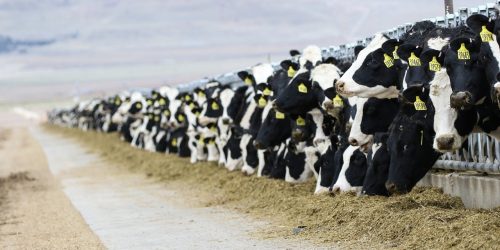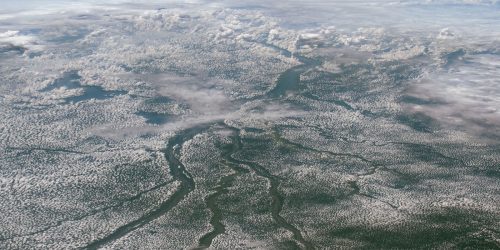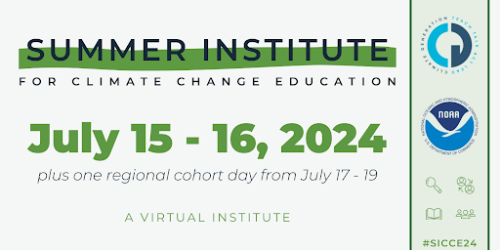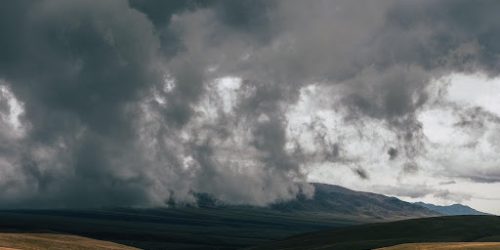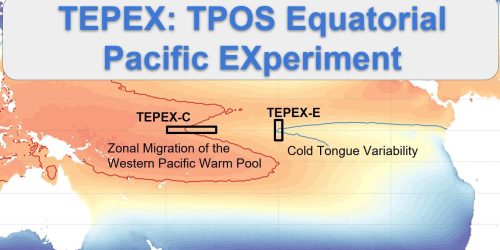NOAA’s Climate Variability and Predictability (CVP) Program, in partnership with the National Science Foundation (NSF) and the Department of Energy (DOE), is announcing three new three-year Climate Process Team projects. These projects aim to accelerate improvements in representing oceanic and atmospheric processes in climate models through interdisciplinary research teams. The competitively selected projects total $2.3 million†, including $1.1 million in grants and $1.2 million in other awards.
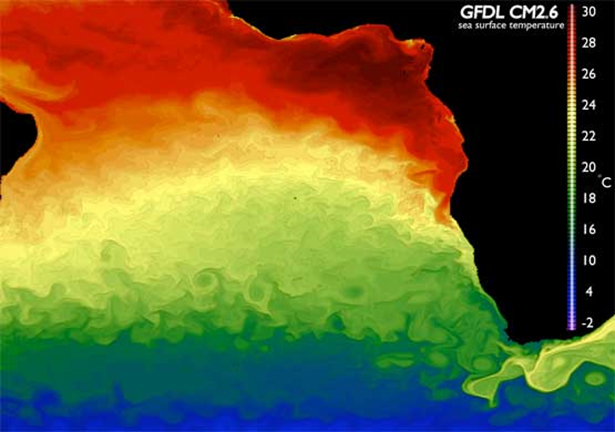
Scientists have come a long way since the earliest climate models, but there are still some oceanic, atmospheric, and other climate processes that are poorly understood and estimated in models. Better preparing communities to grapple with environmental challenges depends on reducing model errors by more accurately representing these processes in climate models. To do this more efficiently, these three new projects will form interdisciplinary teams of modeling and oceanic and atmospheric process experts.
A U.S. CLIVAR concept called Climate Process Teams, the interdisciplinary teams are groups of observationalists, theoreticians, process modelers, and model developers that will work together to transfer improvements in understanding and modeling directly to the model developers. Through close collaboration with two modeling centers and the academic community, these teams speed up the process of reducing model errors and improving climate models and their components. The new CVP Program and NSF-funded Climate Process Teams will focus in depth on improving how ocean and atmospheric processes are represented in climate models.
Potential outcomes of the three projects include improved representation of ocean eddies, or circular currents; enhanced modeling of atmospheric turbulence and convection; and better representation of shallow clouds, tropical cyclones, and low-level jet streams. Together, these advancements will help improve climate predictions and American’s ability to plan for impacts.
The three new projects funded by the CVP Program in Fiscal Year 19 are:
- “Ocean Transport and Eddy Energy”
- PI: Laure Zanna (Lead), New York University*
- Co-PIs: K. Shafer Smith, NYU; Sylvia Cole, Woods Hole Oceanographic Institution; Alistair Adcroft, Princeton University; Ian Grooms, University of Colorado-Boulder; Scott Bachman / Gokhan Danabasoglu, NCAR; Kyla Drushka, University of Washington-Applied Physic Laboratory; Baylor Fox-Kemper, Brown University; Ryan Abernathey, Columbia University; Malte Jansen, University of Chicago; Stephen Griffies and Robert Hallberg, NOAA/GFDL*; Mark Petersen, Los Alamos National Lab$
- “From Boundary Layer to Deep Convection: The Multi-Plume Eddy-Diffusivity/Mass-Flux (EDMF) Fully Unified Parameterization”
- PI: Joao Teixeira (Lead) UCLA/JPL
- Co-PIs: Rong Fu, UCLA, Mikael Witte UCLA; Georgios Matheou, University of Connecticut; Leo Donner, NOAA/GFDL*; Julio Bacmeister, NCAR
- “Improving modeled momentum flux in the atmospheric boundary layer”
- PI: Colin Zarzycki (Lead), Pennsylvania State University*
- Co-PIs: Ming Zhao, NOAA/GFDL; Julio Bacmeister, NCAR; Vince Larson, University of Wisconsin–Milwaukee; Gunilla Svensson, Stockholm University; Leo Donner, NOAA/GFDL*; George Bryan, NCAR
† For every dollar that CVP invests in climate process teams, it leverages 2.5 additional dollars from partners.
* Investigator is funded by the CVP Program, other investigators are funded by NSF unless noted.
$ Investigator is funded by DOE.


